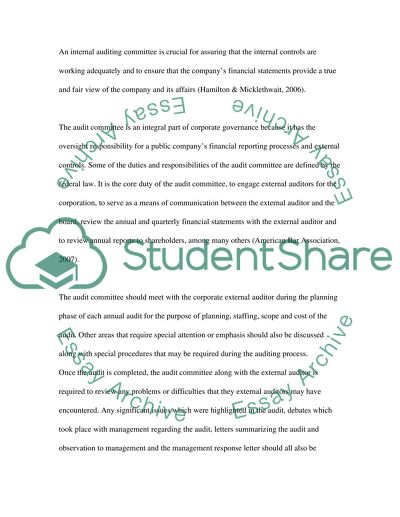Cite this document
(“External Audit, Internal Controls & Management Information Systems Essay”, n.d.)
Retrieved from https://studentshare.org/miscellaneous/1519645-external-audit-internal-controls-management-information-systems
Retrieved from https://studentshare.org/miscellaneous/1519645-external-audit-internal-controls-management-information-systems
(External Audit, Internal Controls & Management Information Systems Essay)
https://studentshare.org/miscellaneous/1519645-external-audit-internal-controls-management-information-systems.
https://studentshare.org/miscellaneous/1519645-external-audit-internal-controls-management-information-systems.
“External Audit, Internal Controls & Management Information Systems Essay”, n.d. https://studentshare.org/miscellaneous/1519645-external-audit-internal-controls-management-information-systems.


